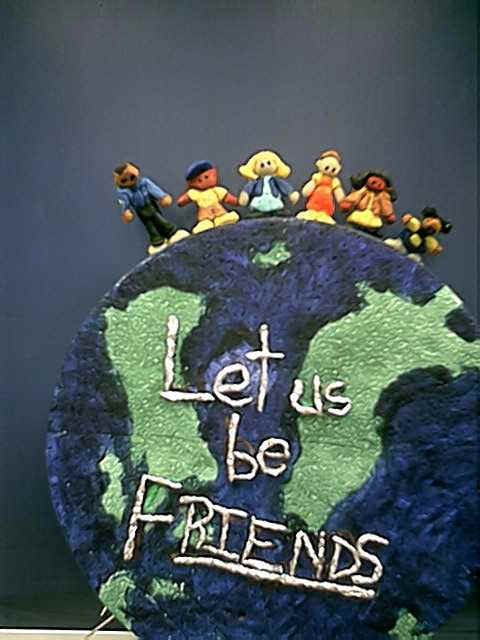



| All of the activities that you have participated in during
this project have helped prepare you for this assignment. You have read the 1989
Convention for the Right of the Child, you have thought about the importance of some basic
human freedoms such as: Freedom of Speech, Freedom of Religion, Freedom from Fear and Freedom from Want. You have discovered that positive and negative consequences result from some of our freedoms and that many of our freedoms are very interwoven with each other. Now as you prepare TO GO TO NEW YORK for the United Nations Meeting on the Rights of Children: PART ONE: 1) Go to the LINKS page and click on the "Your Voice Matters" link. Read what Canadian youth think concerning how we have progressed since 1989 in the area of Children's Rights. 2) Go to the "United States Fund for UNICEF" page. Here you can read about the "State of the World's Children 2002". 3) Go to the "Save the Children" page and browse through the site to familiarize yourself with the state of children's lives in other countries. PART TWO: Equipped with the information above, download the BONE DIAGRAM which is a document in Acrobat Reader format. You will need Acrobat Reader to open the file. Follow the link below if you need to download the program. Make a copy of this thinking tool and "thoughtfully" fill it in. This tool will help you identify the current reality of children in the world, in your country and in your closer environment (your school or classroom). It will help you articulate what you would like the future reality for the world's children to look like. This writing will be the message you will share with the United Nations Meeting on the Rights of Children in New York City in May, 2002. PART THREE: Using the REALITY OR RHETORIC Benchmarks below, write a 400-450 word report. Your report will be posted on the "Your Rights: Reality or Rhetoric?" webpage, along with student writing from across this land. Download "REALITY OR RHETORIC?" process chart which is in Acrobat Reader format. |
|
"RIGHT OR RHETORIC?" BENCHMARKS |
|
| SEEN AND HEARD: CHILDREN'S RIGHTS "It is impossible to predict the future or see with any clarity what the next century will bring. But there is one thing this century has taught us for sure; there can be no global security without human security; no human security without respect for human rights; no respect for human rights without respect for children; no respect for children without listening to and hearing what they have to say. In our interconnected world we have to be more than just observers of children’s suffering, we have to be partners with them in their struggles, talking and consulting with them because they know more about their experiences than we do. Then together we can act." - Landon Pearson Canadian Senator for Children's Rights |
Bless the beasts and the children For in this world they have no voice They have no choice Bless the beasts and the children For the world can never be The world they see Light their way When the darkness surrounds them Give them love Let it shine all around them Bless the beasts and the children Give them shelter from a storm Keep them safe Keep them warm Light their way When the darkness surrounds them Give them love Let it shine all around them Bless the beasts and the children Give them shelter from a storm Keep them safe Keep them warm The children The children |
